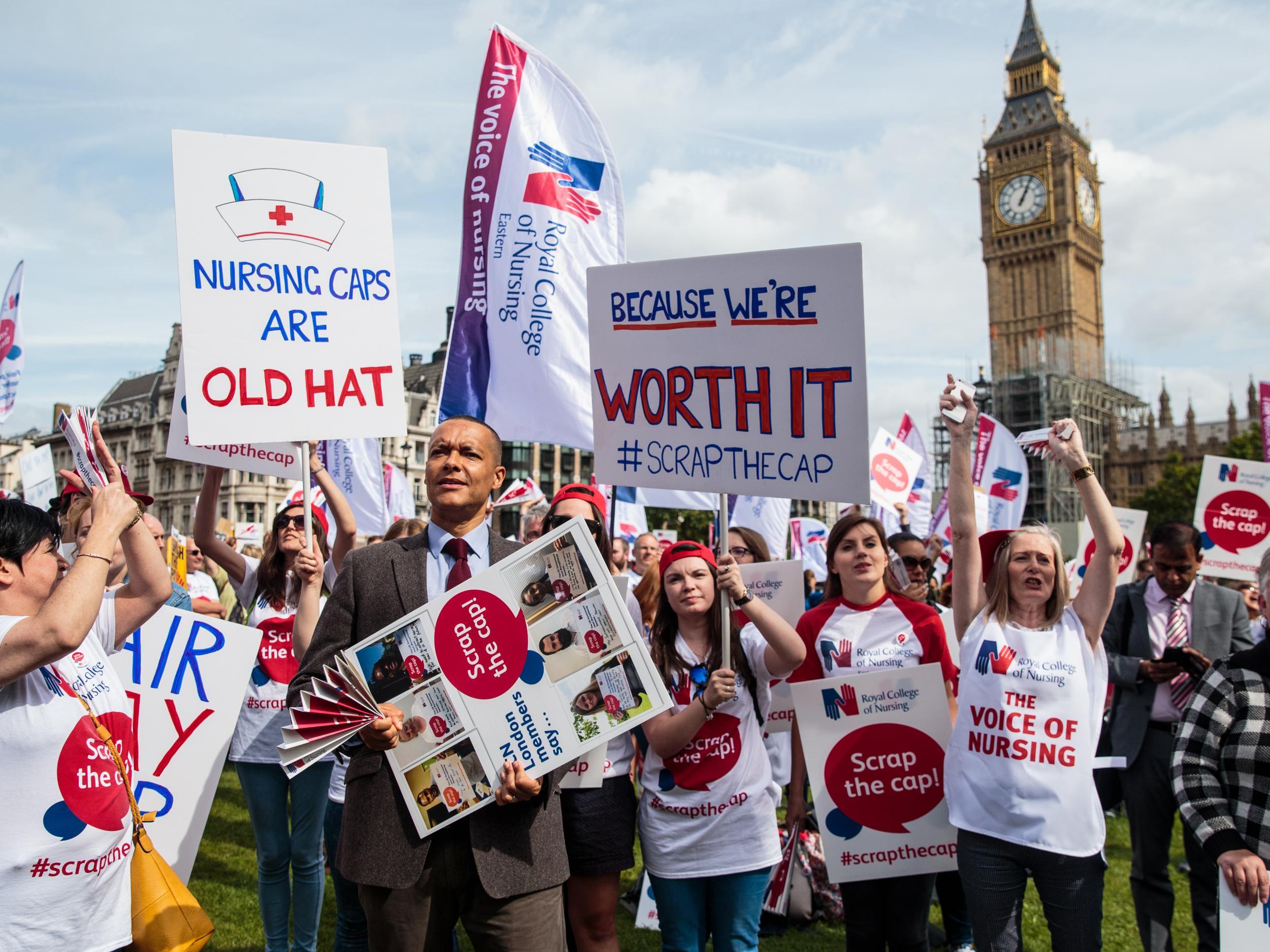Public services will struggle to recruit staff unless Tory pay cap ends, IFS warns
Continuing restraint would take salaries to 'historically low levels' compared to private workers, says think tank

Your support helps us to tell the story
From reproductive rights to climate change to Big Tech, The Independent is on the ground when the story is developing. Whether it's investigating the financials of Elon Musk's pro-Trump PAC or producing our latest documentary, 'The A Word', which shines a light on the American women fighting for reproductive rights, we know how important it is to parse out the facts from the messaging.
At such a critical moment in US history, we need reporters on the ground. Your donation allows us to keep sending journalists to speak to both sides of the story.
The Independent is trusted by Americans across the entire political spectrum. And unlike many other quality news outlets, we choose not to lock Americans out of our reporting and analysis with paywalls. We believe quality journalism should be available to everyone, paid for by those who can afford it.
Your support makes all the difference.Public services will struggle to recruit and retain the staff they need unless ministers ease the restraint on pay, a leading economic think tank has warned.
A report by the Institute for Fiscal Studies (IFS) found average public sector earnings had fallen by 4 per cent in real terms since 2009-10 under the coalition and Conservative governments.
While private sector pay was hit even harder in the immediate aftermath of the financial crash of 2008, the gap between public and private had since returned to pre-crisis levels.
Continuing pay restraint for public sector workers would, therefore, take their pay to “historically low levels” compared to their private sector counterparts, the report said.
The situation is particularly acute among highly educated professionals and workers in London and the South East where the pay gap with the private sector is greatest.
The report comes after ministers last week signalled the existing pay cap was effectively ended with above-1 per cent rises for police and prison officers.
However the IFS cautioned that increasing public sector pay across the board in line with either prices or private sector earnings would be expensive, adding £6 billion-a-year to the cost of employing the 5.1 million public sector workers by 2019-20.
Such an increase would have to be funded by cutting spending in other areas, raising taxes or increasing borrowing.
The report stated if ministers were interested in public service quality, they should target any increases on those areas where recruitment problems were most severe.
Jonathan Cribb, the report's author, said: “If the Government decides to maintain the 1 per cent cap, we should expect increasing difficulties in recruiting, retaining and motivating high quality public sector staff, reducing the quality and quantity of public services.
“But increasing pay for these workers implies substantial extra costs to public sector employers.
“The Treasury could provide extra funds for this by raising taxes, cutting other spending or borrowing more.
“Asking the NHS, for example, to fund higher pay increases from within existing budgets would be very challenging.”
Press Association
Join our commenting forum
Join thought-provoking conversations, follow other Independent readers and see their replies
Comments